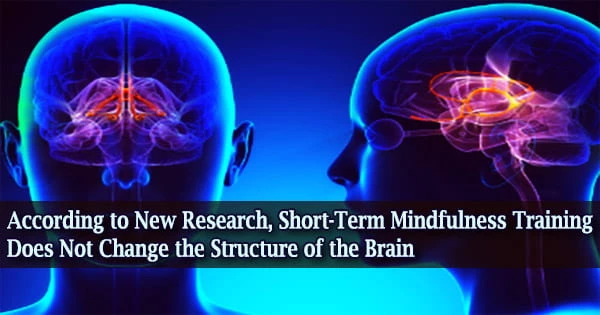New research in the middle of the 20th century suggested that the brain might be “plastic,” meaning that it could change as a result of experience. Learning new skills, like spatial navigation, cardiovascular exercise, and balancing training, have been associated with plasticity.
However, whether mindfulness practices like meditation may change the structure of the brain has remained an unresolved subject. It was proposed in some studies employing the well-known eight-week Mindfulness-Based Stress Reduction course.
But the technology and scope of that study were constrained, and possibly the optional participant pools tipped the balance.
Additionally, mindfulness training has been demonstrated by neuroscientists to have an impact on the brain regions responsible for perception, body awareness, pain tolerance, emotion control, introspection, sophisticated thought, and sense of self. The convergent evidence is persuasive, even though more studies are required to track these changes over time and comprehend the underlying mechanisms.
In recent research, a group from the Center for Healthy Minds at the University of Wisconsin-Madison, led by Richard J. Davidson, did not discover any proof that short-term mindfulness training results in structural changes to the brain. The team’s study, which was published on May 20 in Science Advances, is the biggest and most meticulously planned one to date.
We are still in the early stages of research on the effects of meditation training on the brain and there is much to be discovered.
Richard J. Davidson
In two groundbreaking studies, over 200 healthy individuals without a history of meditation or mental health issues had their brains measured using MRIs before being randomly assigned to one of three study groups: those who took the eight-week MBSR course, those who participated in the Health Enhancement Program, or those who served as the control group and received no training at all.
The MBSR training featured mindfulness exercises like yoga, meditation, and body awareness and was instructed by licensed instructors. The HEP course was created as an MBSR-inspired activity without any mindfulness instruction.
Instead, HEP taught participants about diet, music therapy, and fitness. Both teams put in more practice time at home. All participants had a final MRI scan to assess any changes in brain structure after each eight-week study.
The two studies’ data were combined to produce a sizable sample size. The anatomical changes in the brain were not significantly different between the MBSR and any control group.
Following the trial, participants were then asked to rate their own mindfulness. In comparison to the control group, people in the MBSR and HEP groups reported higher levels of mindfulness. This finding suggests that increases in self-reported mindfulness may be more generally related to the advantages of wellness interventions as a whole, rather than being unique to mindfulness meditation practice.
So, what about the prior study that found evidence of structural changes?
Participants in that study may have had greater space for improvement than the healthy population examined here because they actively sought out a stress-reduction course.
In other words, the first author and behavioral scientist Tammi Kral, who is the study’s primary author, claims that “the simple act of choosing to join in MBSR may be related with higher benefit.” Additionally, the new study used a significantly bigger sample size, which increased the reliability of the results.
However, as the team notes in their most recent work, “it may be that structural abnormalities may only be found with much longer duration of the training, or training explicitly focused on a single form of practice.”
While physical and spatial training results in structural brain changes, mindfulness training covers a range of psychological domains such as attention, compassion, and emotion. This training activates a complex network of brain areas, each of which may alter to varying degrees in different persons, making it challenging to see overall group changes.
These unexpected findings ultimately highlight the value of scrutiny for encouraging results and the necessity of replication for verification. Studies of longer-term interventions, as well as those solely devoted to meditation techniques, may produce different outcomes, too.
“We are still in the early stages of research on the effects of meditation training on the brain and there is much to be discovered,” says Davidson.
















